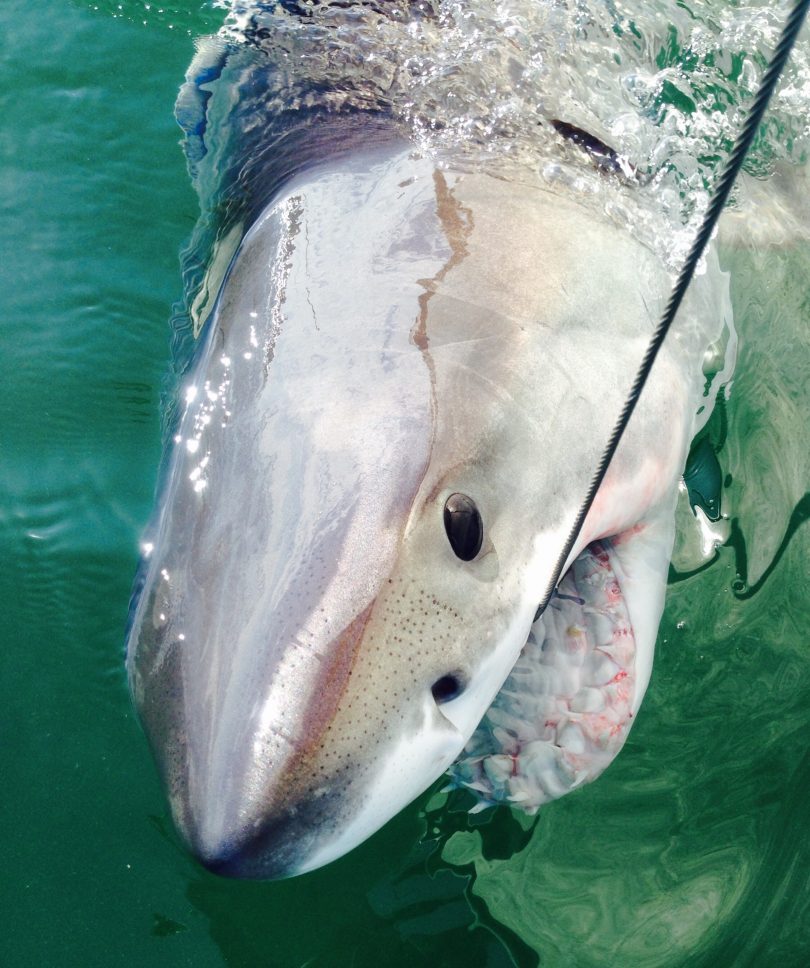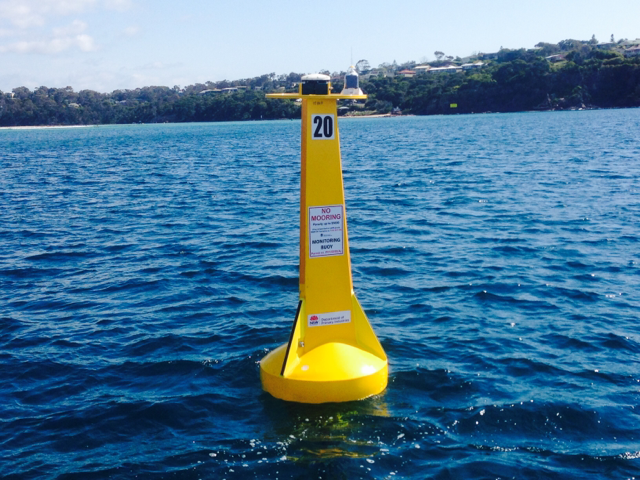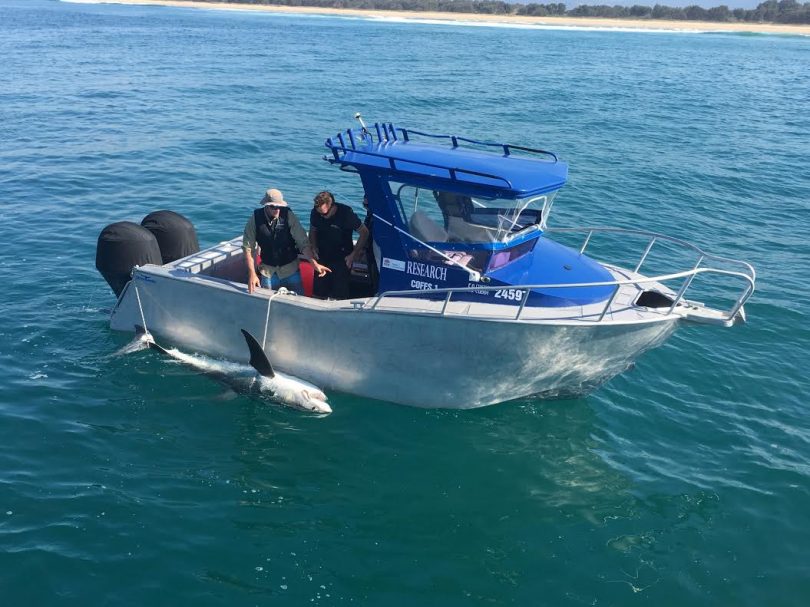
A SMART drumline trial took place off Tathra, Pambula, and Merimbula during March and April 2019. Photo: NSW DPI.
The NSW Government says its SMART drumlines trial in the waters off Tathra, Merimbula, Pambula and other parts of the NSW coastline has proved to be a success but further analysis is needed before any decision on the future of the program is taken.
Minister for Agriculture Adam Marshall says the SMART (Shark-Management Alert-in-Real-Time) drumline trials have helped reduce the risk of sharks on NSW beaches from the North Coast, to Newcastle, Sydney, to the Far South Coast.
“We have had some great results from SMART drumlines along our NSW coastline this summer, which has helped us learn more about shark movements and the effectiveness of this technology,” Mr Marshall says.
The eight-week local trial hit the water on March 1 with 10 SMART drumlines set at Tathra and a further 10 in Merimbula Bay off Pambula and Merimbula beaches. The bright orange and yellow buoys visible on the water’s surface were a talking point over the Easter holidays especially.
Eleven sharks in all were snagged in Bega Valley waters, the NSW Department of Primary Industries (NSW DPI) reports all were released alive, in keeping with the aim of the trial and workings of the technology.
Caught at Tathra:
Six White Sharks – 182cm, 175cm, 170cm, 159cm, 158cm, 150cm
Three Tiger Sharks – 168cm, 150cm, 131cm
Two Bronze Whaler – 210cm, 276cmCaught at Merimbula/Pambula:
Two Tiger Sharks – 320cm, 180cm
One Greynurse Shark – 258cm
Two Bronze Whaler – 240cm; 268cm
While White and Tiger sharks were target species, Greynurse and Bronze Whaler were not. No Bull Sharks, the third target species were snared.
“NSW is leading the world in trials of SMART drumlines. These innovative devices allow target sharks to be caught, tagged and released out at sea, with experts then tracking their movements and alerting authorities when a shark is near,” Mr Marshall says.
“The beauty of this technology is that it not only prevents shark encounters but also allows scientists to monitor the tagged sharks and learn more about their behaviour.
“After the shark is tagged, they are relocated and released approximately 1 km offshore. Our shark tagging program is now estimated to be the largest in the world.”
The trial was met with mixed community reaction.
“I was against it too until I learned the facts and understood what I was questioning. This is a conservation and education effort more than anything and it at the same time saves lives of humans and sharks,” Carmen Risby said on About Regional Facebook in February.
Helen Hugh’s comments at the same time summed up the other side of the discussion, “Seriously folks, how much more of the natural environment must humans have as their sole domain?” she said on About Regional Facebook.

The shark listening post off Merimbula detects the presence of tagged sharks. Photo: NSW DPI
Responding to questions from Region Media, a NSW DPI spokesperson said it was not clear yet whether the trial would become an ongoing program in Bega Valley waters.
“Scientists from the Department of Primary Industries will now examine the results and key findings from the trial before making an informed decision about next steps,” the spokesperson says.
“The DPI will also speak to those communities to inform future decision making about shark mitigation at their local beaches.
“The trial provided a valuable opportunity to educate the community further about SMART drumlines and show how the non-lethal technology can operate in their local area to protect beachgoers while having a minimal impact on the local marine ecosystem.
“This trial will help determine what role SMART drumlines can play in shark mitigation and research in these areas.”
When asked for a timeline around the decision-making process no detail was given. However, the SMART Drumline trial on the North Coast is ongoing until June 30, 2020.
The SMART drumline trials form part of the NSW Government’s $16 million Shark Management Strategy. Other shark mitigation measures include aerial surveillance, tagging, and shark meshing.
To view the full results of the NSW trial check the NSW DPI website.

The government claims the SMART Drumline trial has had minimal impact on the local marine ecosystem. Photo: NSW DPI
Meantime, researchers from Charles Sturt University will be conducting community meetings at Tathra and Pambula later this month looking at community perceptions and preferences for living with and managing sharks.
The researchers will be visiting Tathra on Wednesday, May 29 at 5:30 pm and Pambula on Thursday, May 30 at 5:30 pm. The meetings will centre around small group discussions with researchers looking to understand the range of perspectives on how to live with and manage sharks.
The sessions will take between 60 and 90 minutes, with light refreshments provided. All views and perspectives are welcome to attend.
There will also be a $60 reimbursement for participants to cover any costs or inconvenience.
Numbers are limited, anyone interested in attending should contact Rachel Murray via [email protected]







